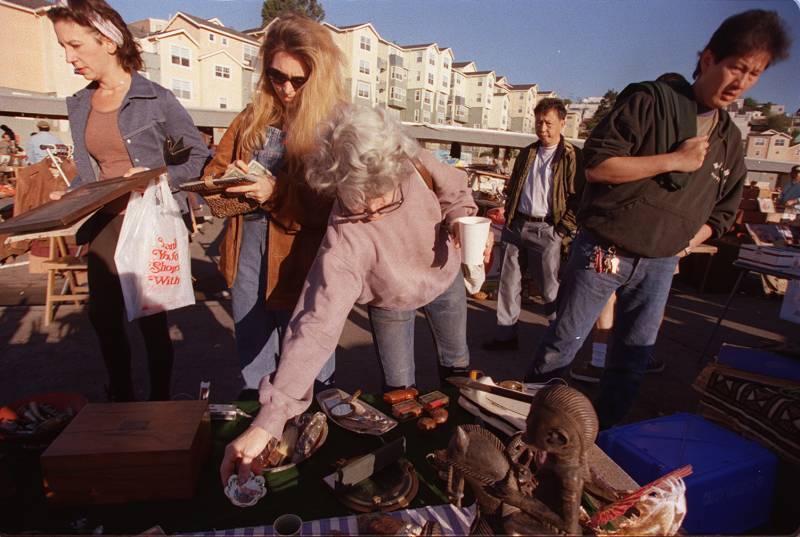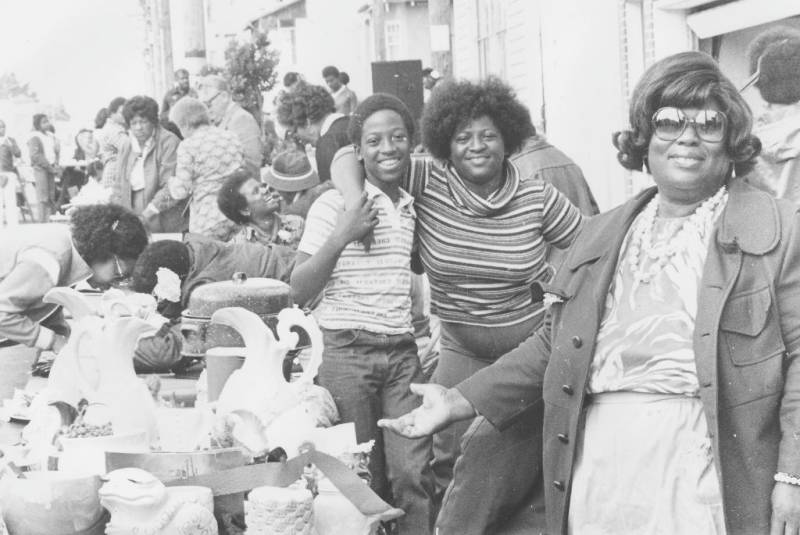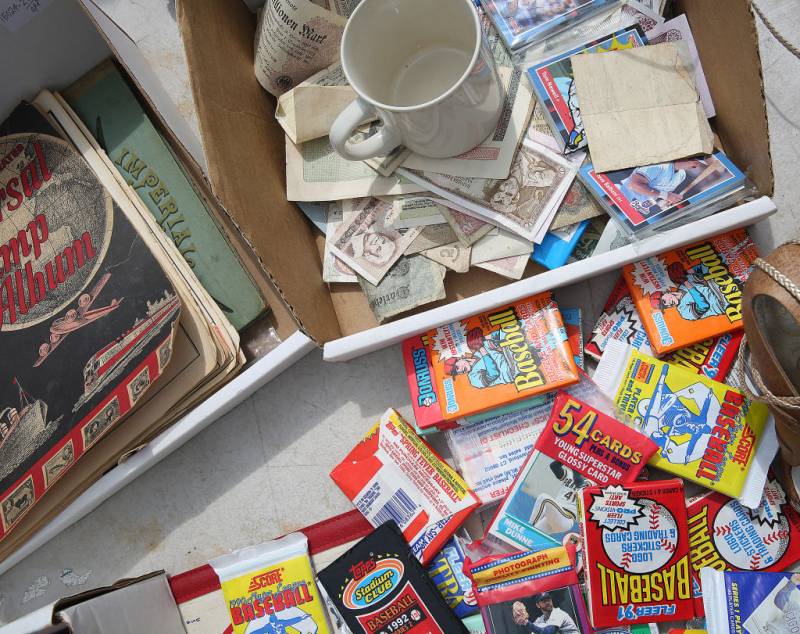
At we near the end of 2022, each of us writers and editors at KQED Arts & Culture are reflecting on one beautiful thing from the year. Here, in a year where our work lives and personal lives became ever more intertwined, our editor Sarah Hotchkiss explains how visiting flea markets helped her retain the concept of free time.
I
am very bad at weekends. I do not relax, I do not go on local hikes or drink mimosas at brunch or do any of the million things the Bay Area has to offer its more sane residents. I know I’m doing this wrong. While other people replenish their work-addled minds by taking in vistas, eating delicious food (leisurely) or simply enjoying the year-round comfort of our Bay Area weather, I spend my weekends alone in a frigid concrete-lined studio, hunched under fluorescent lights.
Ostensibly, I am doing the thing I love, which is making art. But my body does not thank me for these extra hours of work and isolation. It’s lonely and sometimes painful (neck aches, finger cramps, eye twitches). Periodically, I remember to move around a bit and shove some snacks in my face. I listen to hours of tinny podcasts and audiobooks on my phone.
 When I look back at a 2022 of un-weekends, the highlights were the moments when I portioned off something that might resemble a more ordinary understanding of what those days are for. For three hours each Sunday, I go to the flea market.
When I look back at a 2022 of un-weekends, the highlights were the moments when I portioned off something that might resemble a more ordinary understanding of what those days are for. For three hours each Sunday, I go to the flea market.
This is a very specific, not-for-everyone ritual. Because I live with a flea market aficionado and meet a select group of friends there nearly weekly, I sometimes forget that. I have recommended the flea market to people who cruise through in 15 minutes or less and never return. Family members who seem to like old, interesting things have humored me, then touched nothing and bought nothing, confused by my dedication to this activity and place.
I have to remind myself that even though there is something for everyone at the flea market, the flea market is not for everyone.
Despite the flea market’s polarizing effect, I have found my people. My boyfriend, a total fiend for used books, odd objects and anything that might be described as a “deal” or a “find,” has been known to visit foreign cities and feel satisfied only when he has attended the local flea market. Kassel, Germany? Pretty good. Mexico City? Amazing. Turin, Italy? We ran out of room in our luggage.

Our home is filled with things picked up off the streets of San Francisco. Our shelves are lined with used books like Flim-Flam! (because exclamation marks are delightful), pulp paperbacks stacked two-deep, and even (in a meta-moment) a photo book of ’70s and ’80s California flea markets.
The joy of the flea market is the browse, not necessarily the find. Meander past sellers with their wares spread across folding tables or moving blankets with a concrete goal and you’ll likely never find the object you’re looking for, especially if you’ve seen it every week prior. You have to let the flea market come to you.
And even if you’re never going to purchase a plaster rooster or a pair of silver shoes or a crated sculpture made from spray foam and corrugated aluminum, seeing these things, knowing they were once loved or worn or made, is enough. It’s enough to remember that the people who owned them are strange and not like you — a great thing. They had different tastes and needs. They wore silver shoes! And kept a plaster rooster in their dinette! And made a weird-ass sculpture that might actually be good!

In these moments, the flea market is a reminder that different lives (expressed through objects) can coexist. Such reminders don’t happen that often anymore: jury duty, public transit, the library. But we are usually here to seek out joy and small pleasures, not just metaphors for a healthy society.
When you find a thing at the flea market that is so wonderful you don’t even bother to haggle over the price, that you must have for some deeply felt reason despite the accumulation of stuff on your shelves, that is an even more wonderful connection. You now share a relationship to that object with someone else. And you are not different. You and one other, unknowable person are the same.
What is the weekend if not a momentary forgetting of your work-week self?


